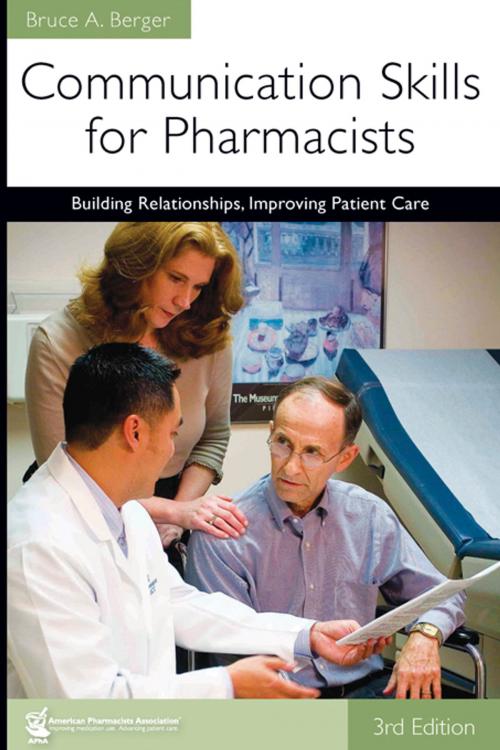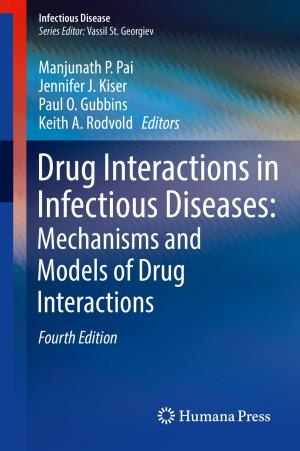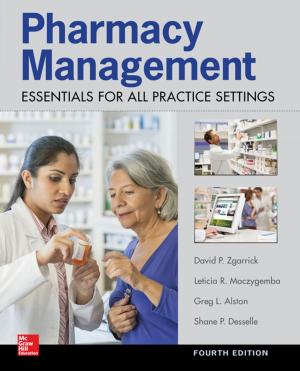Communication Skills for Pharmacists: Building Relationships, Improving Patient Care, 3e
Building Relationships, Improving Patient Care
Nonfiction, Health & Well Being, Medical, Specialties, Pharmacy| Author: | Bruce A. Berger, PhD | ISBN: | 9781582121727 |
| Publisher: | American Pharmacists Association | Publication: | January 1, 2009 |
| Imprint: | American Pharmacists Association | Language: | English |
| Author: | Bruce A. Berger, PhD |
| ISBN: | 9781582121727 |
| Publisher: | American Pharmacists Association |
| Publication: | January 1, 2009 |
| Imprint: | American Pharmacists Association |
| Language: | English |
Communication Skills for Pharmacists: Building Relationships, Improving Patient Care, 3rd edition, includes new material that will help student pharmacists and practicing pharmacists develop the communication skills they need for providing high-quality care. Key Features: • A new chapter tells how to communicate about sensitive topics that patients may find difficult to discuss because of embarrassment, cultural beliefs, or fear of social stigma. • Another new chapter describes the way limited literacy or limited health literacy can affect patient outcomes and how pharmacists can identify and help overcome such limitations in their patients. • The expanded chapter on managing change emphasizes the use of motivational interviewing. • Dozens of examples share good and bad pharmacist–patient and pharmacist–physician dialogues. • Guidelines tell how to contact a physician and then build rapport and discuss drug-related problems with him or her. • Questions for reflection appear at the end of each chapter.
Communication Skills for Pharmacists: Building Relationships, Improving Patient Care, 3rd edition, includes new material that will help student pharmacists and practicing pharmacists develop the communication skills they need for providing high-quality care. Key Features: • A new chapter tells how to communicate about sensitive topics that patients may find difficult to discuss because of embarrassment, cultural beliefs, or fear of social stigma. • Another new chapter describes the way limited literacy or limited health literacy can affect patient outcomes and how pharmacists can identify and help overcome such limitations in their patients. • The expanded chapter on managing change emphasizes the use of motivational interviewing. • Dozens of examples share good and bad pharmacist–patient and pharmacist–physician dialogues. • Guidelines tell how to contact a physician and then build rapport and discuss drug-related problems with him or her. • Questions for reflection appear at the end of each chapter.















